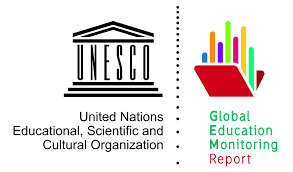
UNESCO reports that girls’ performance in mathematics now equal to boys

According to a new publication by UNESCO’s Global Education Monitoring Report, the gender gap favouring boys in early grades in mathematics has gradually disappeared.
The report has called for communities to think harder about gender inequality and the barriers that still hold girls back from realising their potential.
The report analysed data from 120 countries in primary and secondary education to offer a global picture, deepening the debate on those still left behind. The findings show that in the early years, boys perform better than girls in mathematics but, this gender gap disappears later.
UNESCO confirmed that this research confirms that the gender gap in learning has closed even in the poorest countries and in some countries, the gap is now reversed. “For example, by grade 8, the gap is in favour of girls in mathematics by 7% points in Malaysia, by 3 points in Cambodia, by 1.7 points in Congo and by 1.4 points in the Philippines,” they added.
UNESCO said, however, that biases and stereotypes are still likely to affect learning outcomes, even though girls catch up in mathematics in upper primary and secondary education, boys are far more likely to be overrepresented among the highest performers in mathematics in all countries.
“In middle and high-income countries, girls in secondary school are scoring significantly higher in science, however, despite this advantage, girls are still less likely to opt for scientific careers, indicating that gender biases could still be obstacles to the pursuit of further education in the science, technology, engineering and mathematics (STEM) fields,” added UNESCO.
Co-Founder of Malala Fund, Malala Yousafzai said girls are demonstrating how well they can do in school when they have access to education, but many and particularly the most disadvantaged, are not getting the chance to learn at all.
“We should not be afraid of this potential, we should feed it and watch it grow, for example, it is heartbreaking that most girls in Afghanistan do not have the opportunity to show the world their skills,” she added.
Director of UNESCO’s Global Education Monitoring Report, Manos Antoninis said although more data is needed, recent releases have helped paint an almost global picture of gender gaps in learning outcomes right before the pandemic.
“Girls are doing better than boys in reading and science and are catching up in mathematics, but they are still far less likely to be top performers in mathematics because of continuing biases and stereotypes, we need gender equality in learning and ensure that every learner fulfils their potential,” he concluded.












































